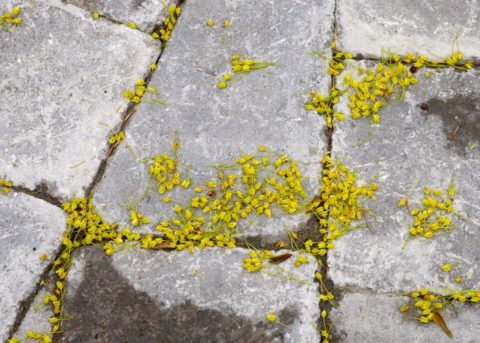 Last week, I talked about the problem with perceptions and asked you to get curious about your perceptions and what you might be missing.
Last week, I talked about the problem with perceptions and asked you to get curious about your perceptions and what you might be missing.
Curiosity is one of the nine key habits for living a contemplative life and I’m convinced it just might be the most important. I wrote about this subject back in March – Curiosity, the Antidote to Judgment and Anxiety.
At the time I was still reading Todd Kashdan’s book, Curious? Discover the Missing Ingredient to a Fulfilling Life. Since then, I’ve been doing more reading about curiosity, noticing people who thrive on it, and trying to be more curious in my own life. Now that I’ve finished Kashdan’s book, I want to share some of my biggest takeaways.
Curiosity is much more than asking a lot of questions. Yes, it’s about learning more, but it’s also about seeing familiar things in new ways, experiencing the present without letting the past or worries about the future cloud our judgment. It’s also a way to experience greater intimacy in relationships and to grow as a human being.
“As soon as we think we understand something, we stop paying attention.” ~ Todd Kashdan, Curious?
Below are some of the rewards of curiosity, according to Kashdan.
1. Curiosity can help you identify your values, interests, and passions, allowing you to live a life that is richer and more meaningful. This is getting curious about and honouring yourself.
2. Being curious can improve your ability to handle chaos. It is at the heart of resilience and recovery. Let’s face it, life is unpredictable. Curiosity helps us respond more effectively.
3. Curiosity is the antidote to judgment, complacency, and anxiety. It is a more constructive habit that keeps life interesting.
4. Curiosity is at the heart of keeping relationships new and fresh because you are more interested and responsive to those with whom you are in relationship. It helps keep them fresh.
“Curiosity is at work when we feel open and receptive to experiences that offer more than what is already known. It creates energy, movement, discovery, exploration, and possibilities.”
How to Cultivate Curiosity
Kashdan cites research that shows most of us spend around 36% of our days doing unfulfilling tasks. If work is also unfulfilling add another 30%. The first step in cultivating the curiosity haibt is to quit doing those tasks that are both unfulfilling AND unnecessary. Do more of what adds meaning to your life. And, Kashdan shares ways to add meaning to those unfulfilling but necessary tasks.
* Begin each day expecting uncertainty and surprises.
* Notice when you’re quick to judge. Get curious about how you can reframe the situation. When you’re open to possibilities, you’ll find them.
* Resist the desire to control. Let novelty unfold.
* Be interested in others and in trying new things. Stop worrying about what others will think or whether you will succeed (easier said than done, I know).
Another book I read on the topic of curiosity is The Power of Why by journalist Amanda Lang. It’s about how curiosity drives innovation – a very interesting book with many business case examples.
“Curiosity requires the courage to risk being wrong – which in the end, doesn’t require all that much courage if you don’t view being wrong as catastrophic.” ~ Amanda Lang, The Power of Why
While this book comes from a business perspective, Lang emphasizes how important it is for each of us to connect with ourselves, to know our unique value, and to bring it into the world.
** Books mentioned have Amazon affiliate links, meaning I make a few cents if you purchase through my link. I only recommend books that I’ve read.
See Todd Kashdan’s TEDx talk, Becoming a Mad Scientist with your Life.
Great post Kim and so important. A curious spirit looks beyond the surface of things and reveals hidden meaning. It is what we strive to do as contemplative photographers…cultivate curiosity!
Yes, Patricia, the most important thing – to always see possibilities.
These sound like interesting books, Kim. I’m going to approach the coming week with an attitude of curiosity. It’s easier with a camera in my hand, but it’s something I want to apply to the rest of my activities. By the way, I love your new photo up at the top of the sidebar!
Thanks, Indigo. Let me know how it goes.
Hi Kim. Love the changes to the newsletter. They always get me thinking and my children even comment on your photos.
I was so happy to move after being in the same place for 10 years. I felt a depressing lack of curiosity there and have been so delighted by the exploration and new sense of curiosity I am experiencing in my new place, as you might be too.
Thanks, Tracy. Yes, I am experiencing that in my new place too. Sometime its good to get a change of scenery.
Thanks for the thought provoking post…
What a very interesting way to think about curiosity! I had always thought there was a driving force behind it–actively searching for information or persistently seeking to understand an idea or relentlessly trying to discover the truth of something. Curiosity takes on a whole new meaning if you learn by giving up control, anxiety, and worry – or by stepping back and being open to new possibilities and unexpected surprises – or by embracing uncertainty. I like this different ‘go with the flow’ and see-what-happens approach!